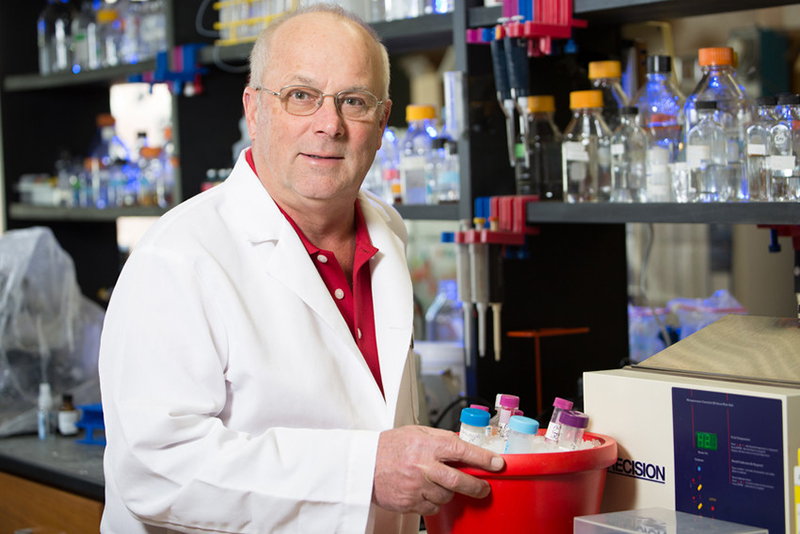FAYETTEVILLE, Ark. – Researchers at the University of Arkansas have identified a species of bacteria that had never before been associated with lameness in broiler chickens, bringing scientists closer to finding a way to prevent infections.
Using genetic tools and chickens raised on wire flooring, the research team determined the bacterium Staphylococcus agnetis is significantly involved with a condition leading to lameness in those broiler chickens, said Douglas Rhoads, University Professor of biological sciences and director of the Cell and Molecular Biology interdisciplinary graduate program at the U of A.
The bacteria had been associated with inflammation of the mammary gland in cattle but not in the legs of broiler chickens. Lameness causes the chickens to suffer and the diseased birds are not fit for human consumption. Rough estimates are that lameness in the Arkansas poultry industry could cost growers about $20 million a year due the loss of birds, Rhoads said.
The team published its findings on Nov. 25 in PLOS ONE, the online, open-access journal from the Public Library of Science.
“Lameness in broiler chickens is a significant animal welfare and financial issue,” Rhoads said. “This is the first report of this poorly described pathogen in chickens.”
Bob Wideman, professor of poultry science at the U of A, had shown that growing young broilers on wire flooring is a contributing factor to lameness in broiler chickens. This study, which included Wideman, shows that S. agnetis is also a contributing factor for lameness in those chickens, Rhoads said.
The study arose from the doctoral dissertation work of Adnan A. K. Al-Rubaye, now an instructor and associate director of the Cell and Molecular Biology graduate program, with contributions from Sohita Ojha, a doctoral student in the program; and Joseph Koon, an undergraduate student at Ouachita Baptist University.
Genome assembly for the study was performed at the Arkansas High Performance Computing Center and the High Performance Computing Center at Oklahoma State University. Jeff Pummill at the Arkansas High Performing Computer Center and Brian Couger at Oklahoma State University were co-authors.
The National Institutes of Health and Arkansas Biosciences Institute partially funded the study.
About the University of Arkansas: The University of Arkansas provides an internationally competitive education for undergraduate and graduate students in more than 200 academic programs. The university contributes new knowledge, economic development, basic and applied research, and creative activity while also providing service to academic and professional disciplines. The Carnegie Foundation classifies the University of Arkansas among only 2 percent of universities in America that have the highest level of research activity. U.S. News & World Report ranks the University of Arkansas among its top American public research universities. Founded in 1871, the University of Arkansas comprises 10 colleges and schools and maintains a low student-to-faculty ratio that promotes personal attention and close mentoring.
Topics
Contacts
Douglas Rhoads, University Professor of biological sciences
J. William Fulbright College of Arts and Sciences
479-575-7396,
Chris Branam, research communications writer/editor
University Relations
479-575-4737,
